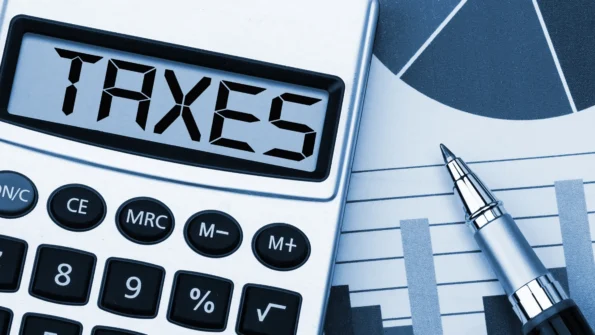Every worker or business owner in Canada has to file their taxes. A tax is a compulsory financial charge imposed on a tax payer by government or governmental institution for the funding of governmental or public expenditures.
The evasion or non compliance with tax payment in Canada and in fact any other country is an offence punishable by law. The form of business you operate or engage in, determines the type of tax you pay and how it will be paid.
Tax filing, popularly known as tax return refers to a process of documentations filed with an approved taxing authority which reports income, expenses and other important or relevant financial information.
Tax filing, which is done annually, ensures that tax payers calculate their tax liability, schedule tax payments or request refunds for the over payment of taxes.
CRA Tax Filing
The Canada Revenue Agency (CRA) is the official Canadian government agency saddled with the responsibility of administering tax laws for the government of Canada and for most provinces and territories.
The CRA provides services on tax filing that involves personal income tax, tax refund; business or professional income, industry codes; corporation income tax, tax rates, provincial and territorial corporate tax; trust income tax, refunds and payments; partnership information returns; non-resident corporations income tax, non-residents income tax, tax treaties, country by country reports, etc.
How To Get Your Tax Filing Done
Tax filing is not as difficult or cumbersome as many people make it look. There are essential easy steps to follow in getting your tax filing done properly and timely, and equally getting all the benefits and credits you are entitled to.
Know Your Due Date
The Canada Revenue Agency (CRA) will start accepting electronic tax returns on Feb 24. As usual, by law, April 30 is the date most Canadians need to keep in mind.
Except for self employed people, this is the deadline day to pay all your tax dues and file returns. If you are self employed however, there is a grace of up to June 15 to finalise your tax filing. If you owe taxes as a self employed, you are still expected to pay up by April 30.
Early Tax Filing
Every individual in Canada must file their income tax returns by April 30th every year to avoid incurring any extra interest or penalties. The CRA sets strict tax filing deadlines and expects all income tax returns and payments to be submitted on time before the deadline.
After the expiration of the given deadline, the CRA imposes interest, fees and penalties on any erring individual or organisation. The first factor to consider in avoiding the penalties, is to know the due date of your tax return.
Tax Filing For Individuals
Each individual income earner must file their income tax returns by April 30th of the year following the year for which they are filing. That is, your tax filing for the year 2020 must be done by April 30, 2021.
As an employee, your employer is expected to give you your T4 information slips on or before the last day of February, which with other documents will be used to finalise your tax filing.
The information from your T4 slips is crucial in the preparation and filing of accurate tax return with the Canada Revenue Agency (CRA). The T4 slips contain how much income you earned and how much tax you have already paid for the year to avoid over taxation.
When an employer issues you a T4 slip (which can be done by paper directly or by mail, electronically by email, or through their online payroll portal), they equally send a copy of it to the Canada Revenue Agency.
Tax Filing For Self Employed
Filing your returns as a self employed, entrepreneur, freelancer, etc can be a bit complicated, especially when you don’t have the T4 income slip. Hence, in order to get your tax filing right, you need to:
- Keep track of your money. That is, your income and expenditures. You need to kNow how much you have earned, who has paid you and who is still owing you, and how much has been expended on the business (not on personal gain).
- Collect and keep receipts and records. Keeping record of receipts and invoices for at least 6 years, will go a long way to help you in filing your taxes with the CRA. You should separate personal and business accounts and transactions.
Unlike the individual employees, if you are self employed or have a spouse or common law partner that is self employed, the CRA gives you a longer time to submit your tax returns up until June 15. If you owe taxes, the CRA will impose interest or penalties to the balance owed as of April 30.
If you do not have enough money to pay for your tax bills, you should still do your tax filing on time to avoid penalties for late filing. If this is done, the CRA will only charge you interest while working on paying your tax(es) owed.
Collate Your Tax Filing Information
It is important for anyone aiming to file for tax return to get everything you need to calculate all your claims on incomes, credits, deductions and expenses. This us usually done by collating all your slips, like the:
T3 slip – statement of trust income allocation and designations.
T4 – statement of remunerations paid
T5 – statement of investment income
Tax Filing Methods
There are numerous secure options for filing your tax returns. These are:
1. Tax Filing for Free Online
There are several certified desktop, online and mobile software products that can be used in getting your tax filing achieved, some of which are free of charge.
You should consider some important components when choosing your preferred software. Factors like CRA/Netfile Certification, cost, security, Add-ons, and features. You should also make sure your information and address is current and up to date.
Free Tax Software for Canadians
Some of the free tax softwares that are CRA certified are:
- TurboTax
- SimpleTax
- Studio Tax
- H&R Block
- Ufile free
- Genutax
- Advtax
- EachTax, etc
2. Paper Tax Filing
You can also file your taxes on paper. If you had previously filed your taxes on paper, the CRA will mail you this year’s income tax package automatically.
3. Phone Tax Filing
According to the CRA, this is based on eligibility. Those who are eligible will receive an invitation letter in their mail to use the CRA’s automated phone service known as File My Return, and they may be able to complete their tax return filing for free by phone. This invitation is sent to low or fixed income Canadians, whose situation does not change from year to year.












